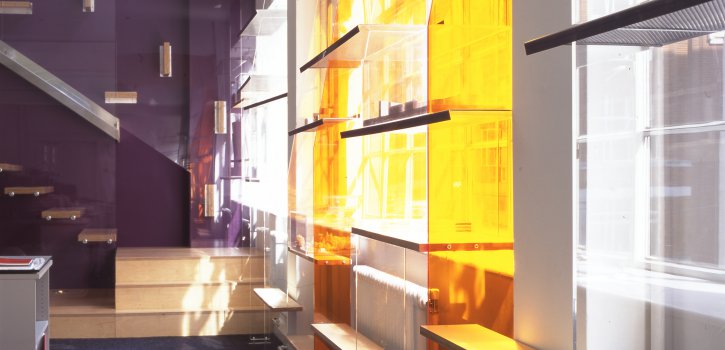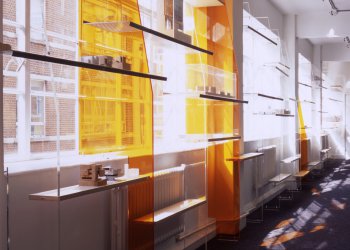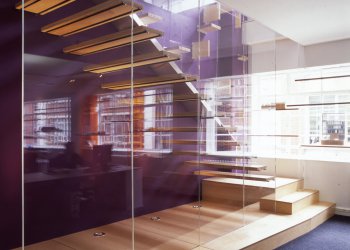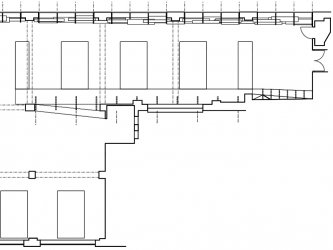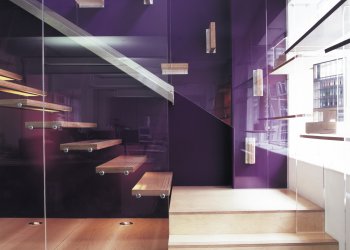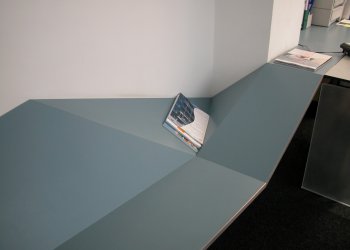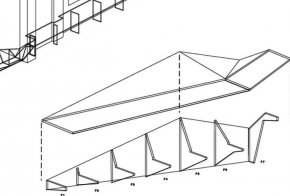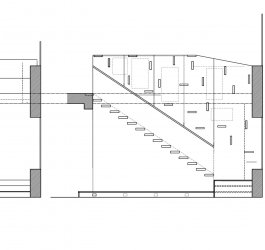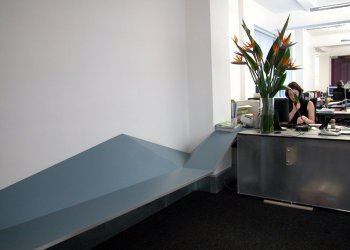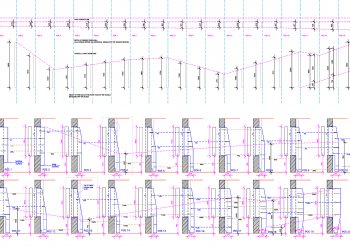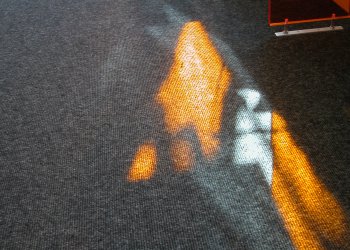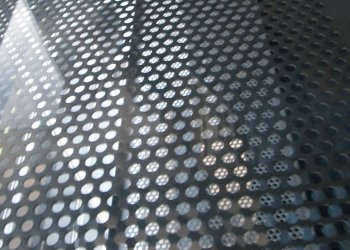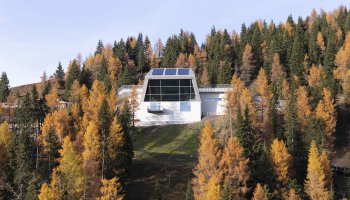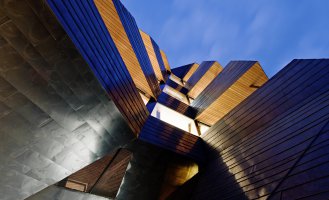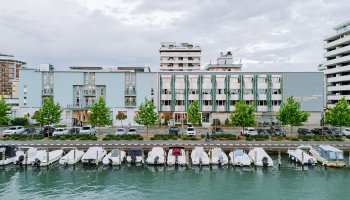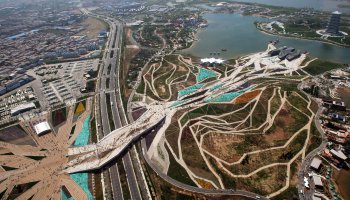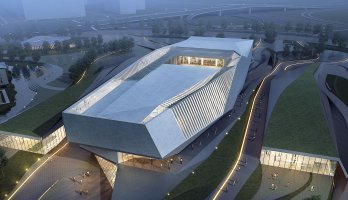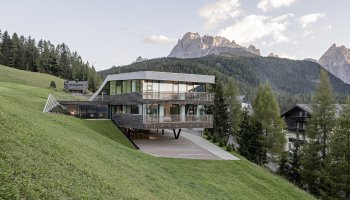For the redesign and extension of FCB Architects’ London office, it was important to provide a clear and functional layout with plenty of flexibility. The overall flow pattern maintains a U-shape with the corridors displaced on both levels and a new internal staircase connecting them. In addition, large scale volumes have been inserted that work together in shape and materiality to order spaces and flows, whilst delivering a critical treatment of various boundary conditions.
Circus House
TYPE Interior
STATUS Commission, Built
LOCATION London, UK
YEAR 2003
CLIENT Feilden Clegg Bradley Architects
DESIGN TEAM Eva Castro, Ulla Hell, Holger Kehne
A room-long workbench provides a backbone for a series of workstations. At one end it folds down to form visitor seating. This intention to unify the worksphere with the reception of visitors is further enhanced by carrying the overall aesthetic to the reception desk. An extensive display system made from a series of perspex risers highlights the structural modular of the building, and projects daylight into the space in unpredictable and fluctuating ways. The risers are cut in order to reveal a continuous wedge-shaped volume that differentiates the corridor from its sides. Its shelves, made from a combination of folded perforated steel and plywood, are arranged in a school-of-fish pattern. In keeping with the riser motif, this suggests coherence amongst individuals that form a community. Carrying working and presentation models, this pattern is representative of the firm’s working methods and social framework.
A new staircase was installed to connect both floors of the office. Solid planks of plywood are suspended from full height perspex screens; in this way, the stair reads as an extension of the display system.
